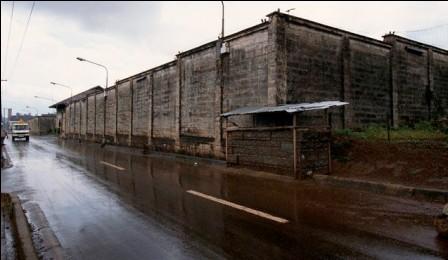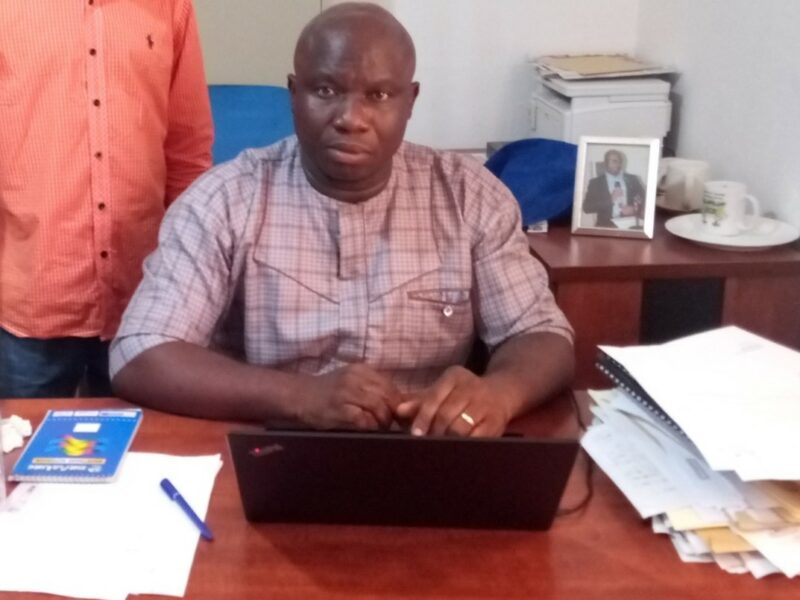Sierra Leone’s Maximum Pademba Road Prison to be relocated – good news at last!
According to Awoko Newspaper, February, 2013: “Government is currently working on a project to relocate the maximum security prison – Pademba Road to another location.” My understanding is the prison population is bursting to an unacceptable standard.
The aim of this article is to assess whether it is in the interest of the public to lock up low risk offenders or not. There is no doubt that low risk offenders have contributed to the increase in prison population, hence a burden to the state. Relocating the prison and bringing it to international standards is fine, but should we be having so many prisoners locked up at the expense of the tax payers?
Predictably, the consequence of increasing prisoner numbers is that prisons become full and overcrowded. Governments are then faced with the choice of continuing to build more prisons without addressing the factors that cause crime. This is the problem that the Sierra Leone Government is currently facing due to prison over-population in the past years. As the Deputy Minister of Internal Affairs rightly said the present maximum security prison was built for 300 inmates, but now houses over 1,000 inmates therefore cannot meet international standards.
Whilst I agree that this is a reason to relocate the prison, I also believe that there are other forms of dealing with criminals without locking them up. Although I have not been able to be on the ground and assess the situation myself as a concerned Sierra Leonean, the literature and other materials that I have had access to in relation to this issue, have all pointed that the current Sierra Leone Criminal Justice Systems is failing the tax payers and the country as a whole. The rate of re-offending is high and it is because offenders do not get the right treatment. Many prisoners have untreated issues relating to trauma. In many cases prison will further traumatize such prisoners through the utilization of mandatory strip searching. People released from prison are more likely to be homeless, poverty stricken and have lost healthy connections with family and friends. The disruption to the lives of children whose parents are incarcerated often leads to a cycle of criminal behaviour amongst such children. Ex-prisoners cannot find employment due to the effects of institutionalization and the stigma of prison.
In a post-traditional social order, I think it is important for the Sierra Leone Criminal Justice Systems to re-examine the need for institutional corrections in a more thorough way than we did in the past. The current prison situation has not only exposed perverse consequences, but a nation that neglects the rights of mankind by locking prisoners in an inhumane environment. Pademba Road Prison is not known for anything good but bad. It is known for keeping prominent politicians, celebrities and notorious criminals. Recently, it has become known for keeping young offenders without reforming their behaviour. I spoke to another concerned Sierra Leonean and he informed me that 65 offenders share a 25 square metre cell with one toilet facility available.
While the debate about what works in reducing crime and protecting the public is ongoing amongst criminologists, politicians and other academicians some countries have adopted another cost effective form to protect the public and manage crime reduction. The USA, UK, Germany, Australia, the Scandinavians and other middle income countries have identified and adopted an alternative to imprisonment for low and medium risk offenders. Community based sentences known as Community Order have taken centre stage within the Criminal Justices systems of those countries. Community Orders are cheap for the tax payers and they are humane. In most cases offenders give back their service to the community for free. Some offenders benefit from learning new skills and they take up a culture of social responsibilities.
Unlike Community Order sentences, prison is a place where individuals are physically confined and usually deprived of a range of personal freedom. Prisons therefore are conventional institutions, which form part of the criminal justice system within nation states. It is meant to serve the purpose of incapacitation, deterrence and reform. Most prisoners have poor reading and maths skills, mental health or substance misuse problems. Some are homeless, unemployed and have no qualification. In prison they are supposed to be treated of their offending behaviour so that once they are released they should be able to fit into the norms of society. Prison has two specific objectives – ‘to protect the public and to reduce crime’ (Cavadino and Dignan). By protecting the public those who commit crimes and are sentenced by a court of law are kept in a safe, decent and healthy environment. Whilst in prison appropriate interventions are put in place to address offending behaviour, improve educational standards, employment skills and promote law-abiding behaviour. Unfortunately, in Sierra Leone the prison system is so bad that we have reached a stage where the country’s human rights record is at stake. We need to reform the system.
I have in an informal way been following the progressive government of President Ernest Bai Koroma and I commend him for the economic, social and health reforms in the country. However, I would like the reform of the criminal justice system to be part of his legacy. This can be done not only by building a modern prison, but by encouraging the court to cut down on custodial sentences. There are five main reasons for sentencing: punishment, rehabilitation, reduction, reform and reparation. In Sierra Leone the current situation has shown that the court prefers the incapacitation method, which is more of a short term than long term objective. I am not blaming the judges for the increase in prison population, but they have a key role to play to reduce the cost of managing criminals and improving our human rights record. The government therefore needs to encourage judges to begin to impose non custodial sentences for low risk offenders. I can understand that this may be difficult as the judiciary is independent and judges are trained to apply the law in the interest of justice. What is missing sometimes in their judgement is whether a custodial sentence is commensurate to a first time offender guilty of a minor crime.
Another way the government could help to reduce the number of prison population is to train Court Officers with the skills and knowledge to analyse and assess the individual offender’s level of risk he or she poses to society and how that risk can be managed in the community. The government has to make sure that the resources required to supervise offenders in the community are readily available. Failure to do so will undermine the effectiveness of the sentence and the authority of the court.
On the issue of relocating the prison, I have no doubt that it is part of the right thing to do and the majority of my fellow country men and women I spoke to welcome the idea. I hope the new location would be outside of Freetown. The current location poses serious and potential risk to the public and in particular those living near by the prison. The presence of armed guards along Pademba Road indicates abnormality and it is uncomfortable to peace loving Sierra Leoneans who do not want to see heavy machine guns in one of the main streets in the capital city.
The current prison establishment was build to keep 300 inmates, but which now has 1,000 inmates. This means that the facilities such as toilets, meeting halls, individual rooms for high risk offenders, administrative offices, kitchen and intervention rooms to address offending behaviour are now used at a stretch. These existing problems do not only violate the rights of prisoners, but the environment at which they are kept undermines the primary purpose of sentencing.
I believe that a new location and a newly built establishment equipped with modern facilities and space would provide an atmosphere for offending behaviour to be addressed. The introduction of programmes designed to address offending behaviour would allow the prisoners to reflect on their behaviour and make informed choices before they are released back into the community. This will cut down the re-offending rate.
I conclude this article with the views of other Sierra Leoneans and my view that the authorities need to relook into our criminal justice system for an alternative way of dealing with crime and criminals. Prison has not been able to reduce the crime rate in Sierra Leone and the cost in infrastructure, maintenance and standards of living for the incarcerated and their families has been huge.
by Momodu Mansaray, UK
Stay with Sierra Express Media, for your trusted place in news!
© 2013, https:. All rights reserved.







